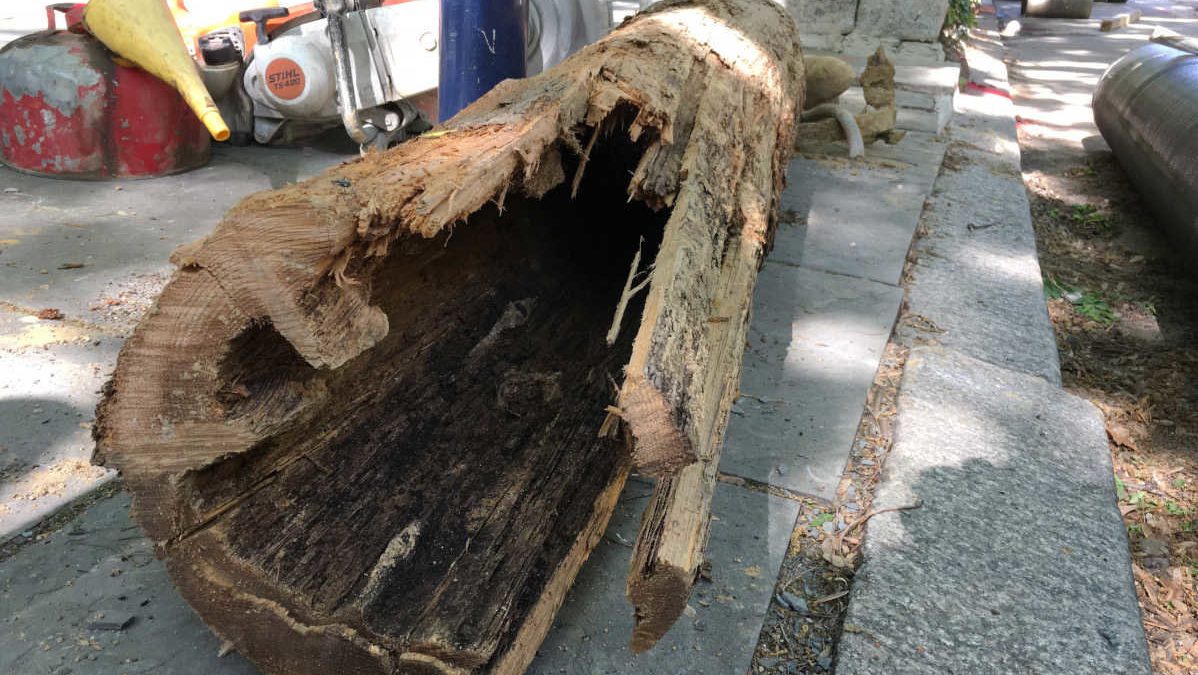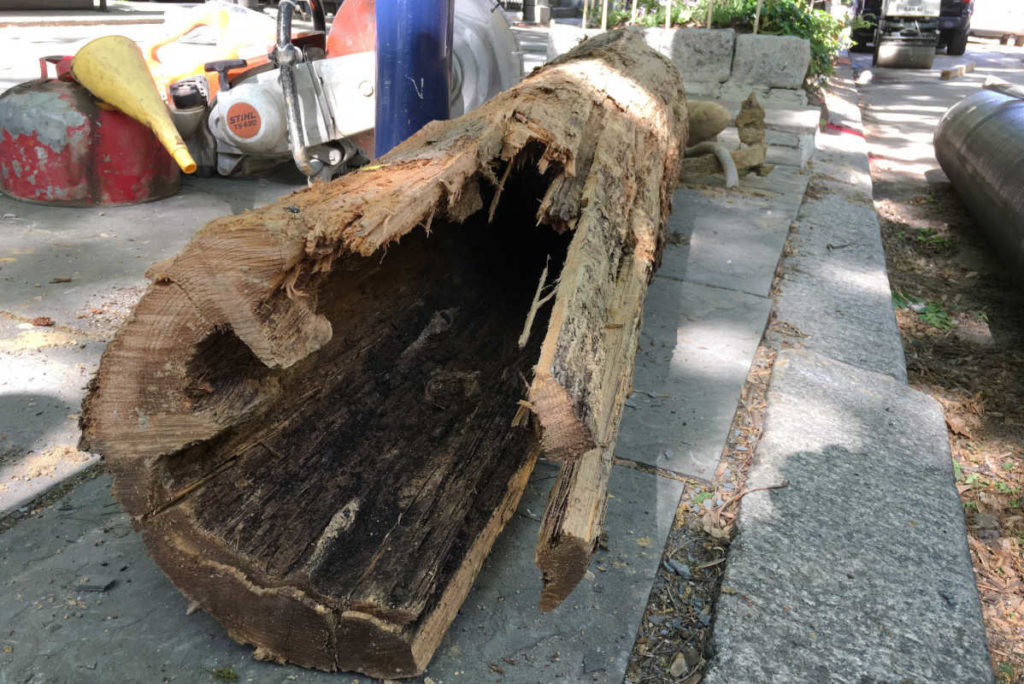Old Wooden Water Mains Found in Center City

Relics of historic Philadelphia were dug up in Center City last week. Repair workers replacing some damaged water pipes on the 900 block of Spruce Street found a little more than they were bargaining for when they dug up the ground to complete their work. Large wooden logs that were bored out in the middle were found underground. Initially dismissed as regular logs, they were eventually discovered to be 200-year-old wooden water mains that had been out of use for over a century.

These long-unused wooden water mains were dug up on Spruce Street by repair workers. (Jon Snyder/Philadelphia Inquirer)
According to the Philadelphia Water Department, the mains date back to 1812, when records show that they were first installed. The funny thing is that the logs’ significance was only discovered by happenstance. Philly.com reports that Julie Snell, a self-described tree geek who teaches a Temple University class on urban ecosystems saw the wooden pipes at the scene when she was biking by. They inspired her to get in touch with Adam Levine, a Water Department historian who has no relationship to the Maroon 5 singer with the same name. Snell had previously heard Levine give a lecture on wooden water mains and thought the findings were significant.
Thanks to Snell and Levine, the mains have been preserved for future historical study and use in educational demonstrations. According to Philly.com, “The wooden pipes were apparently laid on “Back of Spruce, from Ninth to Tenth” between October 1811 and October 1812, according to a report from the department’s archives. The department said Levine’s research showed that the wooden pipe there was replaced in 1831 by a 12-inch cast-iron main.” Cast iron pipes began to be installed in Philadelphia around 1915, but the wooden water mains in usage weren’t fully converted until 1858, according to city records. Just because the wooden water mains weren’t in use doesn’t mean that they were dug up, as the findings from last week clearly prove.



